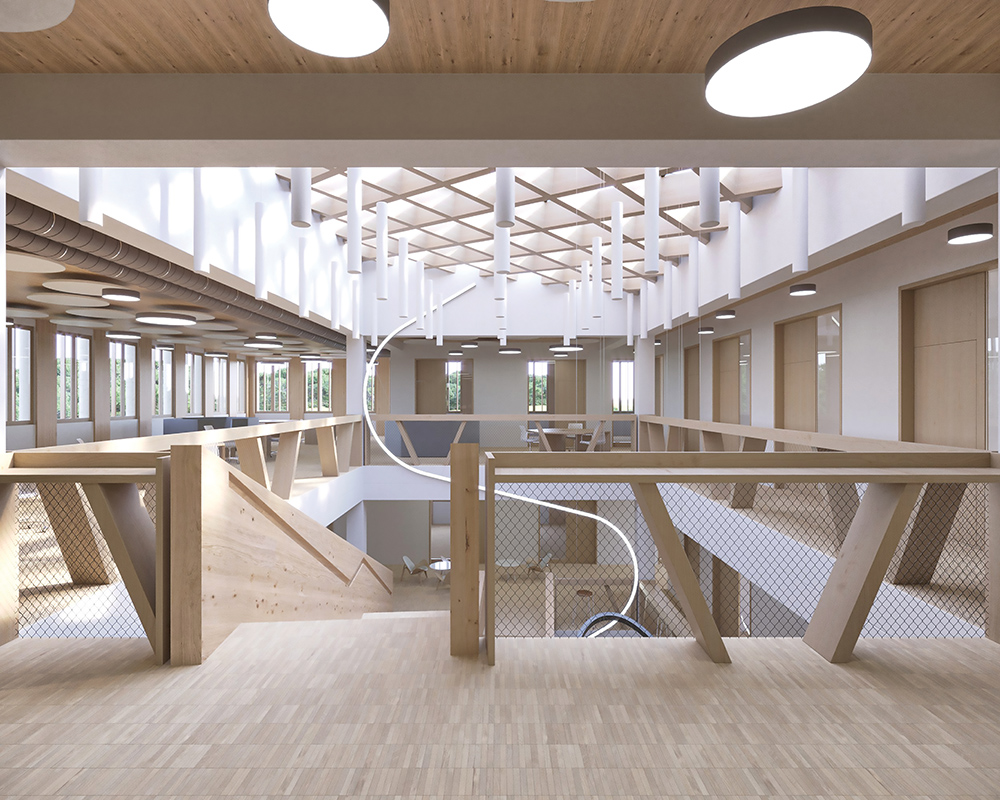Andreja Kutnar arrived in Oregon on September 1, 2006. The visiting Ph.D. student from Slovenia had never been to the U.S. before. She was nervous and excited, and found herself surprised at the cultural differences she encountered. Her friendly neighbor gifted her a bike to get around town; she discovered it didn’t matter that her English wasn’t perfect; and, she was able to build a vast network of friends and colleagues. During her first six-month visit she worked with Fred Kamke, JELD-WEN Chair of Wood-based Composites Science, on wood densification and bonding. Kutnar completed all of the experimentation for her dissertation.
She returned in 2009 for a post-doc before she joined the faculty of the University of Primorska in Slovenia. Soon she had funding for graduate students of her own.

“I wanted to bring an American over because I like the culture and the mentality. I like the way people communicate and how they appreciate diversity,” Kutnar says. “I wanted to stay involved with these people and the research I fell in love with at Oregon State.”
It felt natural for Kutnar to offer her Ph.D. spot to Mike Burnard, who earned his master’s degree in Wood Science at Oregon State in 2012. Eric Hansen, head of the Wood Science and Engineering Department, called Burnard a ‘superstar master’s student’, but there was no funding for his Ph.D. at Oregon State. Just before he committed to attend the University of British Columbia, Kutnar swooped in and recruited him.
“I thought I might come to Europe to do a post-doc or sometime else later in my career,” Burnard says, “But it worked out that I could actually complete my Ph.D. at the University of Primorska. This will be a more permanent solution so that’s great.”
Burnard, Hansen and Kutnar worked together toward a big success in 2017 when the European Union and the government of Slovenia awarded Kutnar 45 million euros to create the ‘InnoRenew CoE: Renewable Materials and Healthy Environments Research and Innovation Centre of Excellence’ research institute.
“The EU does this in a variety of areas,” Hansen explains, “But this was the first focused on wood products, and it’s interesting because there’s not much primary processing of wood products in Slovenia. Much of the processing is in neighboring Austria.”
Scott Leavengood, professor and director of the Oregon Wood Innovation Center, agrees.
“You would expect something like this to exist in Scandinavia or somewhere else in Alpine Europe, but instead there will soon be 60-70 scientists researching wood in various aspects on the coast of Slovenia near the border of Croatia. It’s awe-inspiring,” he says.
Kutnar continues to recruit American students from Oregon State as well as experts from throughout Europe, Brazil, India and Iran as InnoRenew CoE researches renewable materials and sustainable buildings.
Other OSU-transplants to Slovenia include Matthew Schwarzkopf and David DeVellance, who earned their Ph.D. degrees at the College of Forestry, as well as former faculty member Amy Simmons.
Kutnar says InnoRenew’s goals include building a new facility and expanding throughout the continent and the world. For now, collaboration with Oregon State continues. Hansen and Leavengood participate in collaborative research projects with Kutnar and her team in Slovenia. Mariapaola Riggio, assistant professor of wood design and architecture, serves on InnoRenew’s Council of Experts and advises on the development of strategies and scientific challenges within the organization.
“It’s an honor to serve on the Council of Experts,” Riggio says. “My role is to consult on the scientific program of the institute with the executive board and director, advise them on important areas of research and groups for projects and to suggest individual projects to be implemented by the institute and director.”
Riggio also collaborates with InnoRenew’s researchers on several projects, including investigating the perception and performance of biomaterials in architecture, researching nondestructive assessment of cross-laminated timber structures and implementing a monitoring project of InnoRenew’s new facility.
Additionally, almost a dozen Oregon State faculty, staff and graduate students have traveled to Slovenia, and Kutnar co-leads a short-term study abroad experience for students from Oregon State and European universities. There, students learn about InnoRenew up close.
“It’s fun to have the students from Oregon State come in the summer,” Burnard says. “I was able to study abroad in Scandinavia during my time at Oregon State, and it was such a great experience. It’s amazing to see students come here and be awed by the beauty of Slovenia and the differences in the wood products industry. For many of them, it’s a place they had never heard of before they signed up for the program. It opens their eyes to a whole new world of possibilities.”
A version of this story appeared in the fall 2019 issue of Focus on Forestry, the alumni magazine of the Oregon State University College of Forestry. Learn more about international programs within the College of Forestry here.

